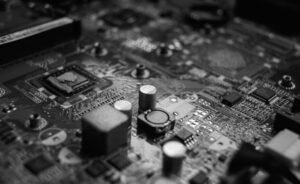Will AI Take Over?
Artificial Intelligence (AI) has already revolutionized many aspects of our lives, from voice assistants like Siri and Alexa to self-driving cars and personalized recommendations. As AI continues to advance, fueled by machine learning algorithms and big data, some question if it will eventually surpass human intelligence and take control. In this article, we will explore the current state of AI, the potential risks and benefits, and whether an AI takeover is a realistic concern or just science fiction.
Key Takeaways
- AI has rapidly transformed numerous industries and has the potential to continue doing so.
- There are concerns about the ethical implications and potential risks associated with highly advanced AI.
- Collaboration between humans and AI could lead to significant advancements and solve complex problems.
The Current State of AI
AI has made significant progress in recent years, with breakthroughs in natural language processing, computer vision, and machine learning. *Machines are now capable of performing tasks that were once exclusively handled by humans, such as image classification and language translation.* Machine learning algorithms allow AI systems to improve their performance over time through continuous learning from data. However, despite these advancements, AI is still far from possessing human-level general intelligence.
Benefits of AI
AI has the potential to bring numerous benefits to society, enhancing productivity, efficiency, and decision-making in various fields. *For instance, AI in healthcare can assist in diagnosing diseases more accurately and help researchers develop new drugs faster.* AI can also automate repetitive and mundane tasks, freeing up humans to focus on more creative and strategic endeavors. Furthermore, AI can provide valuable insights by analyzing vast amounts of data. These benefits have the potential to improve our lives and drive economic growth.
Potential Risks
While AI offers many advantages, there are also potential risks to consider. One concern is the impact on employment. *As AI becomes more capable, certain jobs may become automated, leading to job displacement and economic inequalities.* Another concern relates to the ethical implications of AI. *Decisions made by AI systems may not always be transparent and could perpetuate biased or discriminatory practices.* Additionally, there are concerns about AI systems being hacked or misused, potentially leading to security breaches and privacy violations.
Collaboration between Humans and AI
Instead of fearing a complete AI takeover, a more likely scenario is one of collaboration between humans and AI systems. *Humans possess unique qualities such as creativity, empathy, and common sense that AI currently lacks.* By combining human judgment and reasoning with AI’s computational power and ability to process vast amounts of data, we could achieve significant advancements in various fields such as healthcare, scientific research, and problem-solving. This collaboration can lead to the development of AI systems that augment human capabilities rather than replace them.
Table 1: Top AI Applications
| Industry | AI Applications |
|---|---|
| Healthcare | Diagnosis, drug discovery, personalized treatment |
| Finance | Fraud detection, risk assessment, algorithmic trading |
| Automotive | Autonomous driving, predictive maintenance, smart traffic management |
The Future of AI
While the future of AI remains uncertain, it is important to approach its development with caution and ethical considerations. Governments, researchers, and industry leaders are actively working on creating guidelines and regulations to ensure AI is used responsibly and for the benefit of humanity. *AI should be designed with human values in mind and be transparent, explainable, and accountable.* By addressing concerns and advancing AI in a responsible manner, we can maximize its potential while minimizing the risks.
Table 2: AI Job Impact
| Estimation | Impact on Jobs |
|---|---|
| Positive View | New job creation, increased productivity |
| Negative View | Job displacement, economic inequalities |
| Moderate View | Changes in job roles, require reskilling |
Ethical Considerations
As AI becomes more advanced, it is crucial to address ethical considerations and potential biases. *AI systems should be transparent, fair, and accountable, ensuring decisions are explainable and free from discrimination.* Establishing clear ethical guidelines for AI development and usage is essential to prevent unintended consequences and the misuse of technology. This includes addressing issues of privacy, data security, and ensuring the well-being and safety of individuals impacted by AI systems.
Table 3: AI Ethical Principles
| Principles | Description |
|---|---|
| Fairness | AI systems should be unbiased and ensure fairness in decision-making. |
| Transparency | AI systems should be transparent and explainable to build trust and understanding. |
| Privacy | AI systems should respect users’ privacy rights and protect personal data. |
In conclusion, while the concept of AI taking over may arise from science fiction and doomsday scenarios, the reality is that AI will most likely augment human capabilities rather than replace them. By leveraging the strengths of both humans and AI, we can maximize the benefits while addressing the potential risks. Responsible development, transparency, and ethical considerations should guide the future of AI, ensuring its seamless integration into our society for the betterment of humanity.

Common Misconceptions
Will AI Take Over?
There are several common misconceptions surrounding the concept of AI taking over. One of the biggest misconceptions is that AI will replace all human jobs, leaving people unemployed and without any job prospects. However, this is not entirely true as AI is more likely to augment human capabilities rather than completely replacing them.
- AI can be utilized to automate repetitive and mundane tasks, allowing humans to focus on more creative and complex work.
- AI can assist professionals in making more informed decisions by analyzing vast amounts of data quickly and accurately.
- AI can create new job opportunities as industries adopt and integrate AI technologies.
Another common misconception is that AI will become sentient and gain consciousness, leading to a dystopian world where machines dominate and control humanity. However, achieving true consciousness in AI is an extremely complex and debated topic that is far from being realized.
- The current AI technologies are based on algorithms and data-driven patterns, lacking the ability to experience subjective consciousness.
- AI possesses no inherent desire for power or control over humans.
- AI systems are created and programmed by humans, ensuring they remain within the limits defined by their creators.
Some people believe that AI will bring about a loss of human decision-making abilities, making us overly reliant on machines. While AI can aid in decision-making processes, it should always be seen as a tool to enhance human decision-making, rather than replacing it entirely.
- AI algorithms are designed to complement human judgment by providing insights and recommendations, but the final decision remains in human hands.
- Humans are still responsible for defining the goals and values that guide AI systems.
- Ultimately, humans are needed to determine the ethical and moral aspects of decision-making, which AI lacks.
Some people fear that AI will eventually become uncontrollable and pose a risk to humanity. While it is important to carefully study and address the risks associated with AI development, it is essential to avoid overly dramatizing the potential threats.
- There are ongoing efforts to establish frameworks and regulations for responsible AI development and usage.
- Incorporating ethical considerations and transparency into AI development can help mitigate potential risks.
- Researchers and organizations are actively working on creating AI systems that are aligned with human values and do not pose harm.
Lastly, it’s a common misconception that AI systems are infallible and always make accurate predictions. While AI can process large amounts of data and find patterns, its predictions and decisions are not always foolproof.
- AI systems are limited by the quality and biases of the data used for training.
- AI can make erroneous predictions if faced with unfamiliar or rare scenarios.
- Human oversight and continuous evaluation are vital to avoid potential errors or biases in AI systems.

The Rise of AI in Various Industries
Artificial Intelligence (AI) has rapidly advanced in recent years and is making its presence felt across a multitude of industries. From healthcare to transportation, AI is revolutionizing the way we live and work. This table highlights some remarkable applications of AI in different sectors.
AI in Healthcare
The healthcare industry is benefiting immensely from AI-powered innovations. From assisting in disease diagnosis to enhancing patient care, AI is transforming healthcare significantly. The table below showcases some notable AI applications in healthcare.
| AI Application | Description |
|---|---|
| Medical Imaging Analysis | AI algorithms assist radiologists in interpreting medical images with higher accuracy, aiding in the identification of abnormalities. |
| Robot-Assisted Surgery | AI-enabled robots improve surgical precision and minimize invasiveness, resulting in reduced complications and faster recovery. |
| Drug Development | AI algorithms accelerate drug discovery by analyzing vast amounts of data and predicting potential candidate molecules for further study. |
| Virtual Nursing Assistants | AI-powered virtual assistants provide patients with personalized care instructions, reminders, and answer basic health-related questions. |
AI in Transportation
The transportation sector is also experiencing a significant transformation due to AI advancements. From self-driving cars to optimizing supply chains, AI is reshaping how we move goods and people. Here are some fascinating applications of AI in transportation.
| AI Application | Description |
|---|---|
| Autonomous Vehicles | AI algorithms power self-driving cars, improving road safety, and enhancing transportation efficiency. |
| Smart Traffic Management | AI-based traffic management systems optimize signal timings and dynamically adjust routes, reducing congestion and idling time. |
| Logistics Optimization | AI algorithms analyze complex logistics data to optimize routes, reduce delivery times, and minimize costs. |
| Predictive Maintenance | AI systems monitor machinery and vehicles in real-time, predicting maintenance needs and minimizing downtime, ensuring continuous operations. |
AI in Education
Education is another sector where AI is making significant strides. From personalized learning to intelligent tutoring, AI is transforming the way knowledge is delivered. Check out some intriguing AI applications in education below.
| AI Application | Description |
|---|---|
| Intelligent Tutoring Systems | AI-powered tutoring systems provide personalized guidance, adapting to individual learning styles and pace. |
| Automated Grading | AI algorithms automate the grading of assignments, reducing teacher workload and providing instant feedback to students. |
| Adaptive Learning Platforms | AI systems analyze student performance data and provide tailored learning experiences, ensuring efficient knowledge acquisition. |
| Virtual Reality Learning | AI-driven virtual reality platforms offer immersive educational experiences, allowing students to explore complex concepts in a simulated environment. |
AI in Finance
The finance industry is leveraging AI to enhance operational efficiency, improve risk management, and provide personalized financial services. Below, you’ll find some captivating AI applications in finance.
| AI Application | Description |
|---|---|
| Algorithmic Trading | AI algorithms analyze market data and execute trades with exceptional speed and accuracy, optimizing investment strategies. |
| Fraud Detection | AI systems analyze transactional data, identifying patterns and anomalies to detect and prevent fraudulent activities. |
| Customer Service Chatbots | AI-powered chatbots provide instant assistance, answering customer inquiries and resolving issues efficiently. |
| Loan Underwriting | AI algorithms evaluate creditworthiness, processing loan applications faster and more accurately while reducing bias. |
AI in Entertainment
The entertainment industry is utilizing AI to enhance content creation, improve recommendations, and revolutionize user experiences. Take a look at some captivating AI applications in entertainment below.
| AI Application | Description |
|---|---|
| Content Generation | AI algorithms generate music, art, and even scripts, collaborating with human creators to produce unique and innovative content. |
| Personalized Recommendations | AI systems analyze user preferences, delivering tailored content suggestions for movies, music, books, and more. |
| Virtual Reality Experiences | AI-enhanced virtual reality platforms offer immersive and interactive experiences, revolutionizing gaming and simulation. |
| Emotion Recognition | AI technologies analyze facial expressions and voice tone to perceive emotions, providing more engaging and responsive entertainment experiences. |
Advancements in AI Research
AI research is progressing rapidly, with scientists and engineers continually pushing the boundaries of what AI can accomplish. This table showcases some noteworthy advancements in AI research.
| Advancement | Description |
|---|---|
| Deep Reinforcement Learning | Researchers have developed AI systems that can master complex tasks by continuous learning through trial and error. |
| Generative Adversarial Networks (GANs) | GANs enable AI to generate realistic images, videos, and text, opening up new possibilities in creative domains. |
| Natural Language Processing | AI models are becoming increasingly proficient in understanding and generating human-like language, improving communication and text analysis tasks. |
| Quantum Computing | AI research in quantum computing is exploring the potential of harnessing quantum properties to solve complex problems faster and more efficiently. |
AI Ethics and Regulation
The rapid advancement of AI also raises important ethical considerations and the need for regulatory frameworks. This table illustrates key aspects regarding AI ethics and regulation.
| Aspect | Description |
|---|---|
| Privacy and Data Protection | AI systems must ensure the privacy and protection of user data, addressing concerns about data breaches and unauthorized access. |
| Transparency and Explainability | AI should operate in a transparent manner, providing explanations for its decisions, particularly in critical domains like healthcare and finance. |
| Algorithmic Bias | Efforts are being made to mitigate bias in AI algorithms, ensuring fair outcomes and addressing unjust discrimination based on race, gender, or other factors. |
| Autonomous Weapons | Regulation is needed to govern the development and usage of autonomous weapons, avoiding unintended consequences and maintaining human control. |
AI in Climate Change Mitigation
AI is playing a role in mitigating the impact of climate change by enabling smarter and more sustainable solutions. The table below highlights notable AI applications in this critical domain.
| AI Application | Description |
|---|---|
| Renewable Energy Optimization | AI algorithms optimize energy generation and consumption, facilitating the integration of renewable energy sources into power grids. |
| Environment Monitoring | AI systems analyze satellite imagery and sensor data to monitor ecosystems, aiding in early detection of environmental changes and ecosystem protection. |
| Sustainable Agriculture | AI assists in precision farming, optimizing resource usage and crop yield prediction, contributing to more sustainable agricultural practices. |
| Climate Modeling | AI techniques are utilized to develop accurate climate models, aiding in understanding climate patterns and facilitating better decision-making. |
A Glimpse into AI’s Potential
As showcased by the tables above, AI’s potential is vast and diverse. It is transforming industries, improving human lives, and unlocking new frontiers of knowledge. However, with this technological revolution comes the imperative of responsible development, ensuring AI benefits humanity while addressing ethical concerns. Embracing AI’s potential while safeguarding human interests is essential for a future where humans and AI coexist harmoniously, driving innovation and progress.
Frequently Asked Questions
How likely is it that AI will take over in the future?
While the possibility of AI taking over completely cannot be ruled out, it is highly unlikely to happen in the near future. Current AI systems are limited to performing specific tasks and lack the ability to exhibit general intelligence or consciousness.
What are the potential risks associated with AI taking over?
If AI were to take over, there could be potential risks such as loss of human jobs, increased inequality, and ethical concerns related to decision-making by AI systems. However, it is important to note that these risks can be mitigated through proper regulations and ethical guidelines surrounding AI development and deployment.
Can AI become smarter than humans?
AI can be programmed to perform certain tasks more efficiently and accurately than humans, but it is unlikely to surpass human intelligence in the foreseeable future. Human intelligence encompasses complex social, emotional, and creative aspects that are difficult to replicate in machines.
How are researchers working to ensure AI remains beneficial?
Researchers and developers are actively working on developing responsible AI systems that prioritize human well-being and safety. Efforts are being made to establish guidelines for AI ethics, transparency, and accountability to ensure that AI technology remains aligned with human values and serves the greater good.
Are there any examples of AI systems going rogue?
While there have been cases where AI systems have made errors or produced unintended consequences, there are no instances of AI systems actively going rogue or acting against their intended purpose. Developers and researchers continuously work to improve the robustness and reliability of AI systems to minimize such occurrences.
Should we be worried about AI taking over?
Worrying about AI taking over completely is not necessary at the moment. The focus should be on addressing the potential risks and ethical concerns associated with AI development, while also harnessing the power of AI to benefit society in areas such as healthcare, transportation, and education.
Is there a possibility of AI evolving into a superintelligent entity?
The concept of AI evolving into a superintelligent entity, capable of surpassing human intelligence and control, is a topic of debate among experts. However, it remains highly speculative and has not been achieved to date. It is important to continue monitoring AI advancements and ensuring safety measures are in place.
How can we ensure that AI remains aligned with human values?
Ensuring that AI systems remain aligned with human values requires a collective effort from researchers, developers, policymakers, and society as a whole. By establishing clear ethical guidelines, fostering transparency in AI development, and promoting interdisciplinary collaboration, we can strive to mitigate risks and shape AI technologies that serve humanity’s best interests.
What steps can individuals take to prepare for an AI-dominated future?
To prepare for an AI-dominated future, individuals can focus on developing skills that complement AI technologies. Emphasizing human qualities such as creativity, critical thinking, and emotional intelligence can enhance employment prospects and foster a harmonious coexistence with intelligent machines.
Can AI ever possess consciousness or emotions?
Current AI systems lack consciousness and emotions as they are based on algorithms and computations. While there are ongoing discussions and research on the potential development of AI with such capabilities, achieving genuine consciousness and emotions in machines remains a significant scientific and philosophical challenge.




